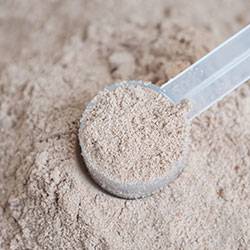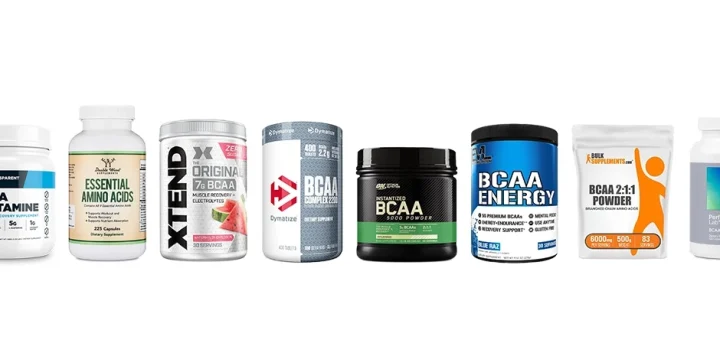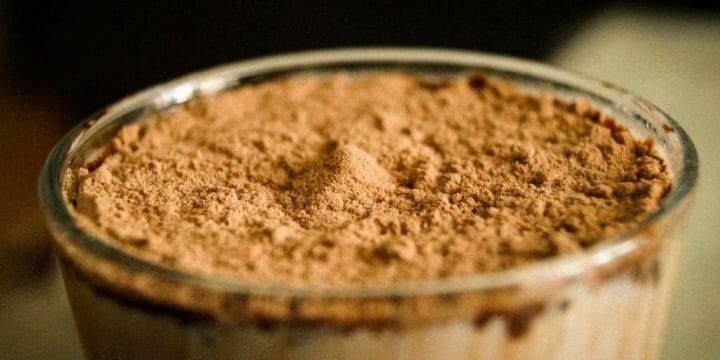Glutamine and BCAAs (Branched-Chain Amino Acids) play essential roles in enhancing physical performance, though they offer distinct benefits in supporting overall fitness goals.
In response to frequent queries from fitness clients about the relative importance of glutamine and BCAAs for muscle building and faster recovery, I delved into research and consulted with fellow fitness experts.
This article aims to explore the difference between these two performance-enhancing supplements and detail the benefits associated with each.
Quick Summary
- Incorporating glutamine can help boost recovery and immunity, while BCAAs play a crucial role in muscle growth and repair.
- BCAAs are recommended for weight loss due to their leucine content and glutamine having the potential to prevent muscle damage.
- The recommended daily dosage for BCAAs is at least 9 grams for women and 12 grams for men.
- In my opinion, the choice between BCAAs and glutamine depends on specific fitness objectives.
The Difference Between BCAA vs Glutamine

Glutamine is a singular amino acid, while branched-chain amino acids (BCAAs) consist of three amino acids: leucine, isoleucine, and valine.
Glutamine aids in overall muscle recovery and immune system function, while BCAAs promote muscle protein synthesis.
In essence, glutamine focuses on recovery and immune support, whereas BCAAs play a crucial role in enhancing muscle growth and repair.
BCAA Benefits

BCAAs are commonly included in workout supplements due to their significant benefits for muscle health. They are frequently combined with pre-workout supplements to enhance overall physical performance.
Among the three BCAAs, leucine is considered the most crucial for promoting muscle building. Isoleucine and valine, on the other hand, play key roles in energy production and blood sugar regulation.
Research from the National Institute suggests that BCAA can boost energy levels, alleviate muscle soreness, and enhance exercise performance [1]
Additional benefits include the following:
|
|
The recommended daily dosage is at least 9 grams of BCAA for women and 12 grams for men. It is best to take it during or immediately after your gym session.
(BCAAs) are of interest to those who want to build muscle because of their role in protein synthesis and turnover, and energy regulation. BCAAs also play a role in glucose metabolism and immune and brain function.
- Kyle Byron, Nutritionist
Glutamine Benefits

Glutamine offers significant benefits, especially following injury, burns, or surgery when glutamine levels may decline, according to a research published by the National Institute of Health [2].
Supplementing with glutamine in these situations can help enhance immunity and preserve protein stores.
Also, research from the National Institute of Health suggests it has the potential to increase human growth hormone (HGH) levels, contributing to a boosted metabolism [3].
For those seeking to elevate HGH levels, explore the best human growth hormone supplements.
Is BCAA Better Than Glutamine?

BCAA is not necessarily better than glutamine. The choice between the two workout supplements is dependent on your specific fitness goals.
If weight loss is the goal, BCAAs are recommended due to their leucine content, whereas glutamine has the potential to prevent muscle damage.
Notably, glutamine supports the immune system better than BCAAs, acting as a cell fuel source and influencing gut function.
For many years, our team has opted for BCAAs for mass building and relied on glutamine for fatigue prevention and post-workout soreness reduction.
Watch the video to know more about the two.

FAQs

What Are The Benefits of Taking Both Supplements?
The benefits of taking BCAAs and glutamine are complementary. The best BCAA supplements can aid in muscle mass building, while glutamine prevents fatigue and soreness, potentially reducing recovery time. Combining the two supplements maximizes workout benefits, promoting enhanced performance and overall fitness gains.
Does Glutamine or BCAAs Build Muscle?
BCAAs are more effective for muscle building, supported by numerous studies. While both BCAAs and glutamine contribute to protein synthesis, glutamine doesn't specifically aid in mass growth. However, it proves valuable in reducing soreness and enhancing recovery post-exercise.
Do I Really Need To Take Glutamine?
In most situations, you don't necessarily need to take glutamine. It's conditionally essential, with supplements recommended only for specific cases like serious injuries or post-surgery. As your body naturally produces it, and it's found in diets rich in animal proteins like beef or chicken, supplementation may not be crucial for everyone.
What Are The Negative Effects of Glutamine?
The negative effects of glutamine are minimal, given its natural presence in the body and common dietary sources. Adverse side effects are rare due to the body's natural production and likely dietary intake. However, the lack of long-term research on glutamine supplements is a factor to consider.
What Are The Negative Effects of BCAAs?
The negative effects of BCAA supplements are minimal, suitable for most individuals as they only contain essential amino acids. Research suggests a daily intake between 15 to 35 mg generally poses no adverse effects [4].
References:
- https://www.ncbi.nlm.nih.gov/pubmed/11125767
- https://www.ncbi.nlm.nih.gov/pubmed/26283217
- https://pubmed.ncbi.nlm.nih.gov/7733028/
- https://pubmed.ncbi.nlm.nih.gov/22952178/
About The Author
You May Also Like






